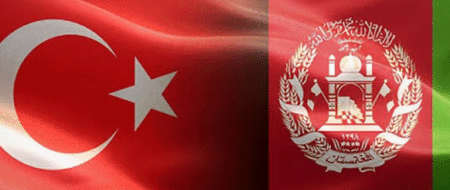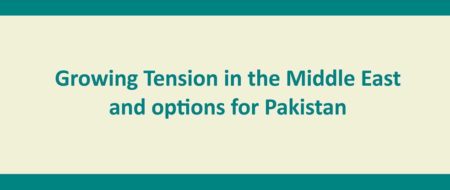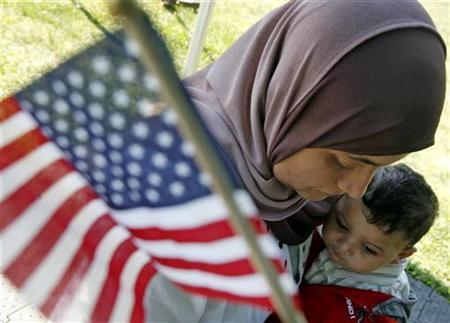Ideological Mobilization in the Muslim World
Policy Perspectives , Volume6 , Number1, January – June 2009
Abstract
[Religion as the basis of political ideology should be carefully distinguished from religion as a marker of identity that may in turn be the basis of political action. Islam’s vision has from the outset been a universal one, and its aspiration as well as the scope of its early history a transnational one. The Muslim world is targeted not because it is Muslim, but because it is weak. National political movements professedly based on Islam are predominantly political and only secondarily religious. In the Muslim world secularism is equated with despotic regimes under western sponsorship. In the welter of dialogues between Islam and the west, exercises of the present kind have distinct value by virtue of discussing practical issues of governance and contemporary dialogues bring together westerners with a role in policy making Muslims who are purely intellectuals. Colonialism destroyed indigenous institutions of social cohesion in Muslim societies, and even in the post-colonial era the lack of authentically Islamic social and cultural institutions left an opening for armies and bureaucracies. Muslim societies should make their own judgments about the nature of the threat and the optimal response to it, rather than being dictated to by the west. – Ed.]
The concept that the Muslim World is not a unified, monolithic, single minded group of people and that it comprises diverse ethnic, linguistic, sectarian, cultural and ideological entities can hardly be over emphasized. However, it is also a fact that the basic tenets of Islamic teachings encompassing the individual and collective life (society and State) provide the Muslim World a common Identity.
It is, therefore, imperative to understand the areas, factors, elements and causes of deviations and divergences from the basic Islamic fundamentals; to analyze the efforts that are and have been made in this regard; and to find solutions to the problems of the contemporary Muslim World. It is also essential to examine and investigate the similarities and divergences between the basic Islamic principles and modern structures of governance, as well as to scrutinize the current structures of government as an experiment in the Muslim world.
While analyzing the problems and bringing up solutions, it is also essential to understand that ideological and political mobilization varies in orientation, approach, capacity, and magnitude according to the social, economic, political and strategic situation of the region, country or peoples. This means that any investigation of these problems can not avoid the fact that diversity within a common basic framework is an important aspect to be explored, analyzed and discussed.
In this context, the following discussion focuses on the understanding of how the academia, think tanks and political leaders of the Muslim World analyze the current national and international political dynamics with reference to the Muslim World, what the opinion makers, policy experts and decision makers in the West in particular and the world in general could make use of while formulating an approach towards the Muslim World and how to bridge the gap between images and reality, journalistic vocabulary and ideological currents and political objectives and responses of the masses. The following themes characterized the discussion:
Western and US (Mis) Understanding
There is a fundamental failure by the West to understand the rich variety of intellectual currents and cross-currents in the Muslim world and in Islamic thought. What is underway in the Muslim world is not a simple opposition to the West based on a sense of grievance (though grievances there also are) but a renewal of thought and culture and an aspiration to seek development and modernize without losing their identity. This takes diverse forms, and can not be understood in simple terms. There is particular resentment at Western attempts to define the parameters of legitimate Islamic discourse. There is a sense that Islam suffers from gross over generalization, from its champions as much as its detractors. It is strongly urged that in order to understand the nature of the Muslim renaissance, the West should study all intellectual elements within Muslim societies, not only professedly Islamic discourse.
The British and the Indian nationalists, each in their own interests, overstated the significance of the 1857 mutiny and uprising in India. A parallel is noted in the mutual rendering by pan-Islamists and the West of Osama bin Laden into a more significant figure than most of the Muslims believe he truly is.
Vocabulary
Terms of discourse in the Western understanding of Islam are important both to an accurate understanding of intellectual and political trends in Islam, and to whether Muslim opinion feels properly understood by the west.
Not all that happens in the Muslim world is Islamic. Not all that professes to be Islamic is so, or is even actuated by religious rather than political purposes similar to those in any religious or intellectual tradition. Not all Islamic approaches to politics are Islamist.
Wrong End of the Stick
It is necessary to have a dispassionate and empirical approach to the understanding of developments in political ideology in the Muslim world. There is a widespread sense that the West is engaged in a “blame game”, that this reflects a blindness to its own violent role in the Muslim world, and that it leads to a failure of understanding, with detrimental effects on the stability and freedom of Muslim societies and on the standing of the United States in the Muslim world.
US policy should focus on reform and the rule of law in the Muslim world with the same degree of commitment that characterizes its counter-terrorism efforts. In the course of the global war on terror, lawlessness and political exclusion has increased in societies where there was relative order and inclusion. This reflects a general lawlessness and corruption spawned by autocratic practices, as well as the lack of transparency, that the war on terror has legitimized. If terrorism means resort to violence against innocent civilians, then all forms of terrorism, individual, group and state should be equally condemned. The issue of legitimacy and justness of the objectives as well as of the means used to counter terrorism are equally important and relevant. The lack of legal protection suffered by Muslim minorities in countries such as India and the Philippines is seen as having been emboldened by the pervasive denigration of Islam and Muslims.
Violence and Terrorism
The global counter-terrorist agenda is seen as a fig leaf for the political and economic goals of the West. There is a clear sense that terrorism is not the only form of violence, and that the focus on it to the exclusion of other issues obscures the extent to which pervasive violence is found in Western societies and the extent to which Western states and private interests perpetrate violence in the Muslim world. The whole area of causes and factors responsible for promoting terrorism is central to any strategy to make the world safe from terrorism.
Indeed, Muslim societies appear to be more self critical of the violence within than is the West. There is a chasm between reality and Western perception: the fact is that more than 20% of Americans polled consider the use of force against civilians legitimate, whereas fewer than 10% of Muslims do so.
There is recognition that terrorism must be fought by Muslim societies too, because the cultural, social and traditional integrity of Muslim societies is threatened by the revolutionary changes to social order that it triggers. However, there is a clear sense that Muslim societies should make their own judgments about the nature of the threat and the optimal response to it, rather than being dictated to by the West.
Diversity within Islam
Two important questions are posed. Who speaks for Islam? And what is Muslim or Islamic?
There is a continuing awareness among the educated of intellectual developments among Muslims in other regions, though translation and local paradigms of understanding lead to modification, often inadvertent of intellectual frameworks borrowed from elsewhere. There are significant regional, national and local variations in Muslim experience and pers-pective.
For purposes of the development of religious ideology, Sudan parti-cipates in the same realm as Egypt. There is an emerging sense of a common thread of experience among Muslims in Uganda, Kenya, Tanzania, Somalia and Ethiopia. A sense of grievance among Kenyan and Tanzanian Muslim minorities, and among Ethiopians (described as a persecuted “majority”) is seen within the same framework as developments in Somalia. South East Asian Muslims think of themselves as having had and continuing to have a progressive tradition.
In Pakistan, the first explicitly Islamic modern nation, the sense of Muslim identity is very strong among individuals and at the level of political discourse. Yet Islam has not and does not significantly mobilize the polity at large. That said, since 9/11 modern westernized elites have turned against the West, even while resisting overt religiosity. Religious parties have not been able to capitalize on this development, and remain the preserve of the educated socially conservative migrants from rural to urban areas, or the urban lower middle class.
The perspectives of Muslims living as minorities in non-Muslim majority countries are quite distinct from those of Muslims living in predominantly Muslim countries. Muslim minorities are discussed below.
Struggle for Justice
The broader aspirations of the Muslim world are reflected not only in a cultural struggle against a culturally and religiously hostile and uncom-prehending West; they also reflect protest at an unjust global order, comprising injustice and inequality in international economic and political relations and injustice and inequality in arrangements within autocratic Muslim societies, most often sponsored and protected by the West.
Professedly Islamic armed insurgent movements, such as the Moro Islamic Liberation Front or the Taliban, also reflect common elements with Maoist and Naxalite movements, namely a sense by beleaguered communities of encroachment by powerful outsiders.
“Islamists and Islamism”
Use in Western discourse of the terms Islamist or Islamism are seen as vague and confused.
National political movements professedly based on Islam are pre-dominantly political and only secondarily religious. The popular appeal within Muslim nations of such movements is based in substantial part on their articulation of aspirations for social and economic justice, or antipathy to elements of the global economic order, that are shared with secular movements worldwide.
Constitutional Principles
The obligatory sovereignty of Allah is not necessarily at odds with the notion of popular sovereignty and democracy, as long as the latter is consistent with broadly religious principles. Shariah is an obligatory basis for statecraft and social conduct, a set of guiding principles for reasoning about meeting the demands of change and the appropriate contemporary means for ensuring compliance with divine law. The role of critical reasoning is therefore central to the practice of Shariah.
The tradition of Islamic statecraft (or social norms) going back to the time of the Prophet (PBUH) in Madina has much of contemporary relevance to say about justice and welfare, the rights of minorities, unity within the Muslim community and cohesion with non-Muslim minorities and neighbors. Indeed, the term Ummah was used by the Prophet (PBUH) to describe all the distinct communities of Madina, not only Muslims.
Because of the widespread perception among Muslims that there is a rich tradition to draw on for the conduct of statecraft, there is wide popular support for Islamic forms of administration, and political slogans based on Islam are highly resonant in the Muslim world and among Muslim minorities.
Islamic justice is seen as being at the heart of the world-wide intellectual and political renewal of Islam. Islamic law is appealing because it is seen as a constraint on rulers and a mechanism for ensuring justice for all – a cognate of Western notions of the rule of law.
Intellectual and Religious Freedom
The status and treatment of religious, sectarian or ideological minorities within Islamic societies is a contested territory. Some see the ideological variety as a sign of vigor; others see particular sectarian minorities such as Ismailis or Ahmadis as “western-inspired mischief to be nipped in the bud“. This point of view seems to some participants to be based on political, not religious, concerns.
Muslim Minorities
These issues, and even more those of the treatment of non-Muslim religious minorities in predominantly Muslim societies, cause concern to those Muslims who are minorities in predominantly non-Muslim societies.
There is a significant distinction in the priorities and perspectives of those from Muslim minorities in Sri Lanka, India and the Philippines, and those of Pakistanis and others from Muslim-majority nations. It is also the case that those from long-established minorities seem to have a different sense of Muslim identity from Muslim minorities in diaspora in the West. The former are rooted in local and regional cultural practices and social relations with non-Muslims, while the latter are seen as much more susceptible to global intellectual trends and a transnational sense of Muslim identity.
There is an instinct among Muslim minorities to remain cool in their political behavior. An interesting if predictable dialectic arises between Pakistanis who wonder how Indian Muslims can be so tame in the face of violence, and the Indian Muslim perspective that acknowledges the legal protection and accommodation by the Indian state, the need to avoid a knee jerk persecution complex, and the possibility of militancy provoking backlash and further violence from majorities.
The Struggle Within
There is a frank recognition, as much by Islamists as by others, that the vulnerability of the mass of Muslims is not entirely a result of external attack, but that a look inward and self-criticism are called for. The context for this self-searching is provided by a sense of a shared and common danger, vastly increased communications and transparency among Muslim nations as a result of new media, and a sense of grievance about issues such as Palestine.
Colonialism destroyed indigenous institutions of social cohesion in Muslim societies, and even in the post-colonial era the lack of authentically Islamic (or authentically national) social and cultural institutions left an opening for armies and bureaucracies. These constitute the seeds of the current enemy within, the local despotisms.
Ideological struggles based on cultural norms can be a distraction from socio-political ones. There is a sense that the definition and solution of social problems in Muslim societies requires mainstreaming of the discourse about the guidance provided by Islam on all aspects of governance. Otherwise, religion has been a means for introduction of conservative cultural practices from the Arab world into the non-Arab world; practices which are seen as reflecting alien cultural practices rather than Islamic obligation. Bangladeshi women note that they have traditional forms of modesty in traditional Bengali clothing and do not require Arab costume to be good Muslims. The distraction caused by the focus on the culture wars is seen as helping autocrats to divert popular struggles and bolster their longevity.
Equal detriment to the interests of Islam and the Muslim world is seen in the instances when Islamist movements have supported coups and other undemocratic means for rising to power or influence, as in Sudan.
Transnational Challenges
Islam’s vision has from the outset been a universal one, and its aspiration as well as the scope of its early history a transnational one. Moreover, the orientation and evolution of the early Muslim community under the Prophet’s guidance was worldly and pragmatic, with public utility as the overarching principle.
*- This discourse is based on the two-day discussion that brought together experts and scholars from Muslim countries such as Bangladesh, Egypt, Indonesia, Malaysia, Pakistan, Sudan and Muslim minority countries India, Kenya, the Philippines and Sri Lanka representing academia, non-governmental organizations and think tanks. Among the participants were a number of former government officials and one sitting legislator. The participants were also chosen to comprise a broad spectrum of ideologies, including the religious and the secular, cultural, political and economic conservatives, liberals and radicals. Applying the Chatham House Rule, the names of the participants are not given here. The discussion was jointly conducted by the Henry L. Stimson Center, Washington DC and the Institute of Policy Studies, Islamabad, in Islamabad-Pakistan on July 9-10, 2008.
[1] Islamist, refers here to that ideological and political trend in the Muslim world which is characterized by making Islamic religion as a major inspiration in defining objectives and direction of political action. The ultimate goal is described as establishment of an Islamic society and state. Islamic movement, Islamic revivalism or Islamic resurgenece are some other terms used to describe this phenomenon.





